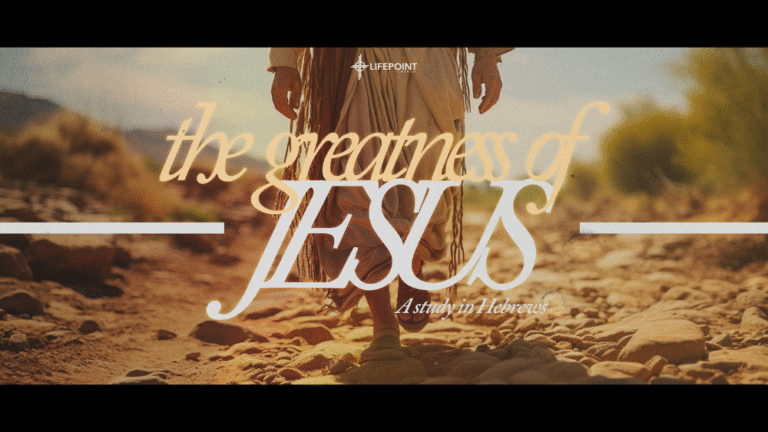Hebrews 6:4–6 contains one of the most sobering warnings in the New Testament. It says that it is “impossible to restore again to repentance” those who have once experienced the things of God and then fallen away. For many readers, this raises a painful question:
If someone attends church for a season, genuinely enjoys Christian fellowship, maybe even feels stirred by God’s Word—and then walks away—does this passage mean they can never repent and be saved?
The answer, within the historic Reformed (or what we’ve called Option 2 in this article) understanding of Hebrews 6, is a clear no. This passage does not describe the ordinary wanderer or seeker—it describes the final, willful rejection of Christ after full exposure to His truth. In other words, repentance is never impossible for those who still desire grace.
1. “Impossible” Means Morally and Spiritually Impossible, Not Absolutely Impossible
The Greek word translated “impossible” (adynatos) can mean “incapable of occurring” from a human perspective. The author isn’t saying God lacks the ability to forgive, but that those who have hardened themselves after rejecting Christ will not repent. Their hearts have become so resistant to the Spirit’s work that genuine repentance no longer occurs.
The Puritan theologian John Owen put it this way in his Exposition of Hebrews: It is not that God denies them mercy if they should repent, but that they have so hardened themselves they are incapable of repentance.
Thomas Schreiner, in his commentary on Hebrews (BECNT), makes the same point: the author uses the word “impossible” not to suggest that God’s grace has limits, but to highlight the danger of rejecting the only means of grace that exists—Christ Himself. Once someone has decisively turned away from Him, there is nowhere else to turn.
2. The Context Is Final Apostasy, Not Ordinary Backsliding
The people described in Hebrews 6 aren’t struggling believers or inconsistent church members—they are individuals who have fully understood the gospel, participated in the life of the church, and then consciously repudiated Christ. That’s why the author says they “crucify once again the Son of God and hold him up to contempt.” It’s a deliberate reversal of allegiance—a public and informed rejection of the Savior.
In contrast, someone who drifts from church for a season or wrestles with doubt is not in view here. The writer’s audience is still in the danger zone, not beyond it—which is precisely why he’s warning them. The very act of reading and trembling under this text is proof that one hasn’t crossed that line.
3. Apostates, Wanderers, and Seekers
Reformed interpreters often distinguish between three different spiritual conditions when explaining Hebrews 6. This helps clarify who the “impossible to restore” warning truly applies to:
| Type of Person | Description | Restoration Possible? |
|---|---|---|
| The Apostate (Heb 6:6) | Fully informed, willfully rejects and opposes Christ after once professing Him. | No — not because God is powerless, but because they are permanently hardened. |
| The Wanderer (James 5:19–20) | Drifts from obedience, community, or fellowship but hasn’t rejected Christ Himself. | Yes — can be restored to repentance; believers are urged to bring them back. |
| The Seeker/Attender | Unconverted person who has tasted the goodness of the gospel community without genuine faith. | Yes — may later repent and truly believe if God grants saving grace. |
The “impossible” language applies to the first group alone—the hardened apostate who has definitively rejected Christ after full understanding. Wanderers and seekers remain within the reach of God’s redeeming mercy.
4. The Illustration of the Field and the Fruit
The author immediately follows with a parable-like image (vv. 7–8): rain falls on two fields. One produces useful crops and receives blessing; the other grows only thorns and briars and faces burning. The same rain represents God’s gracious influences—His Word, Spirit, and people. The difference lies in the soil.
As John Calvin observed, “The fault is not in the rain, but in the ground.” The warning is not that the barren field can never be changed, but that while it continues to reject the rain’s purpose, it remains under judgment. Should God plow the soil anew, even barren ground could yet yield fruit.
5. Pastoral Implications
- For the wanderer: There is still hope. If you sense conviction or desire repentance, that very longing is evidence of the Spirit’s work. Hebrews 6 is meant to alarm the complacent, not crush the contrite.
- For the church: Keep praying for and pursuing those who have drifted. As long as a person lives, God can still awaken their heart. The warning passages themselves are one of the instruments God uses to draw His people back.
- For the hardened: The warning remains real. To reject Christ after clear knowledge of the truth is to side with those who crucified Him. Such hardness, if unbroken, leads to irreversible ruin—not because grace is unavailable, but because it is despised.
6. Summary
Within the Reformed and evangelical understanding of Hebrews 6, the “impossibility” of restoration describes the final hardness of apostasy, not the temporary wanderings of sincere but weak believers. God’s grace is sufficient for anyone who still desires Him. The very fact that someone wonders, “Could I come back?” is evidence that they have not crossed the line of Hebrews 6:6.
“Whoever comes to me I will never cast out.” — John 6:37
As long as Christ reigns, no one is beyond grace who still desires grace.
If you’ve wandered and want to return to Christ, reach out to our team at Lifepoint MV. We would love to listen, pray, and walk with you back toward Jesus.

